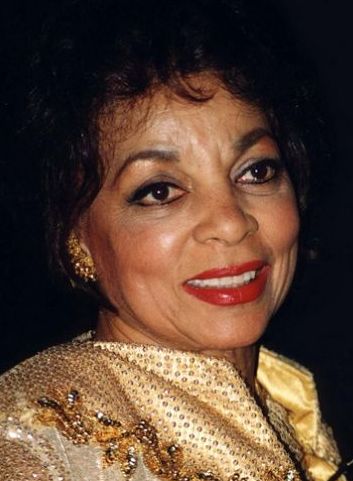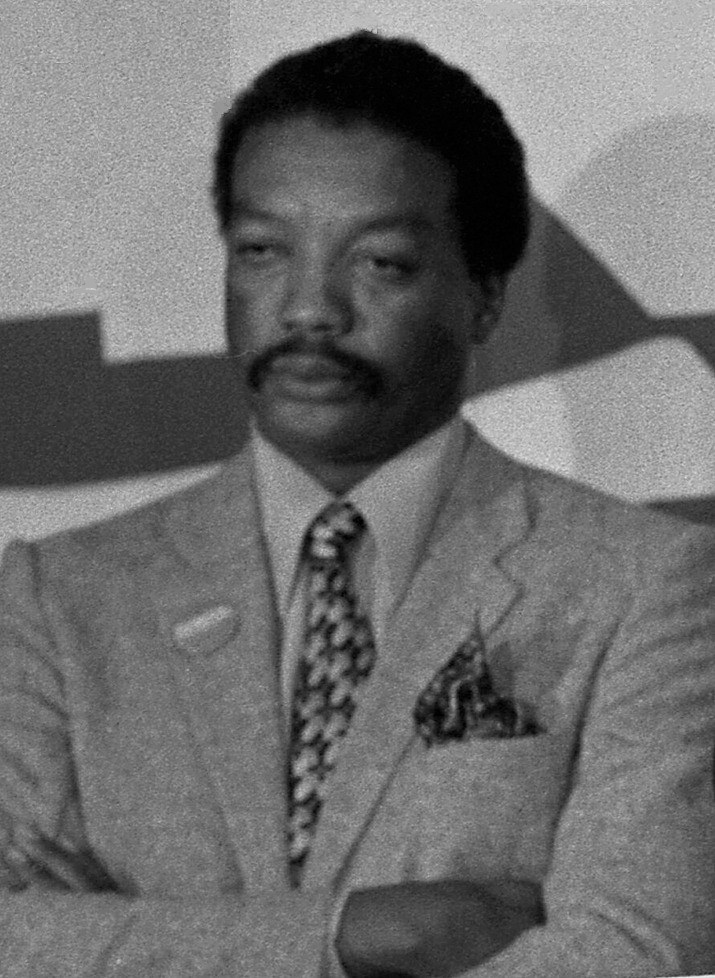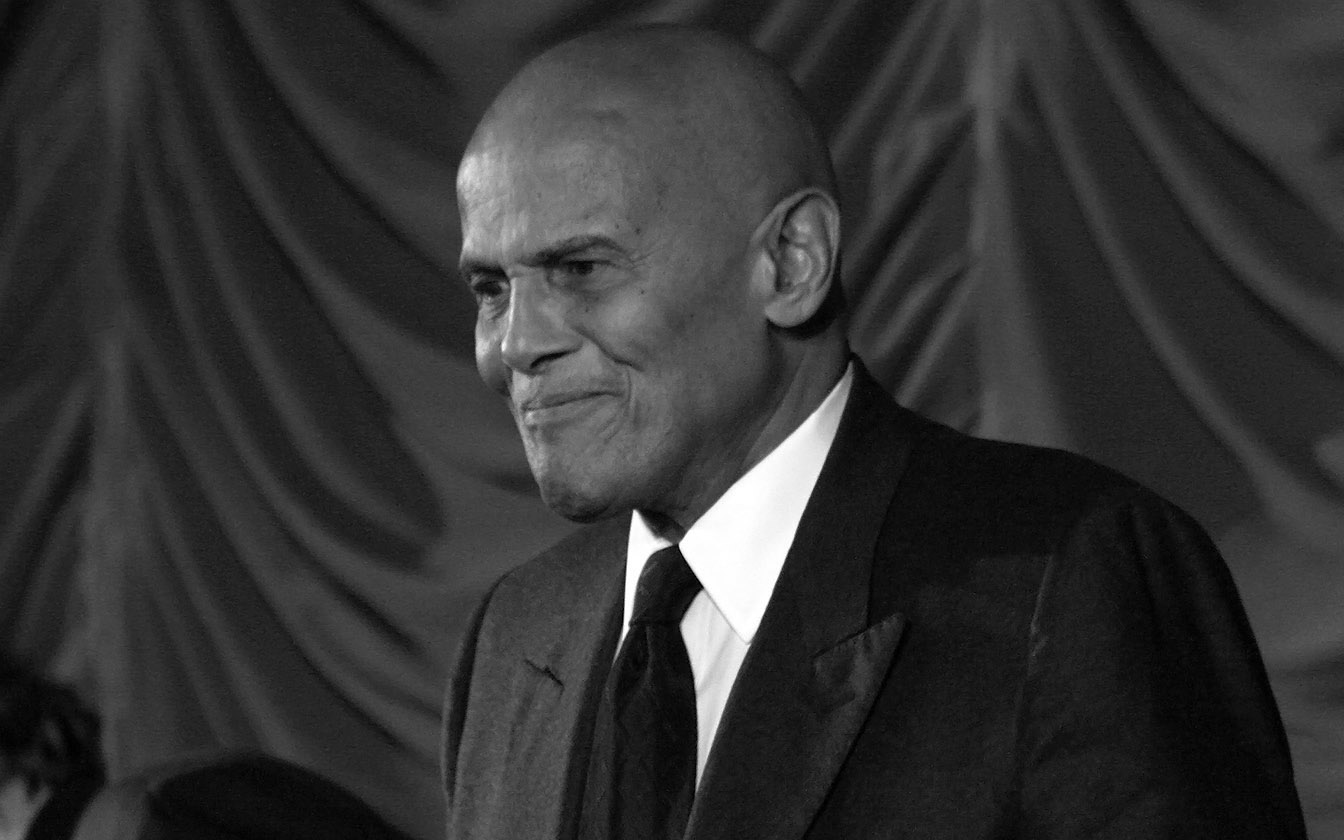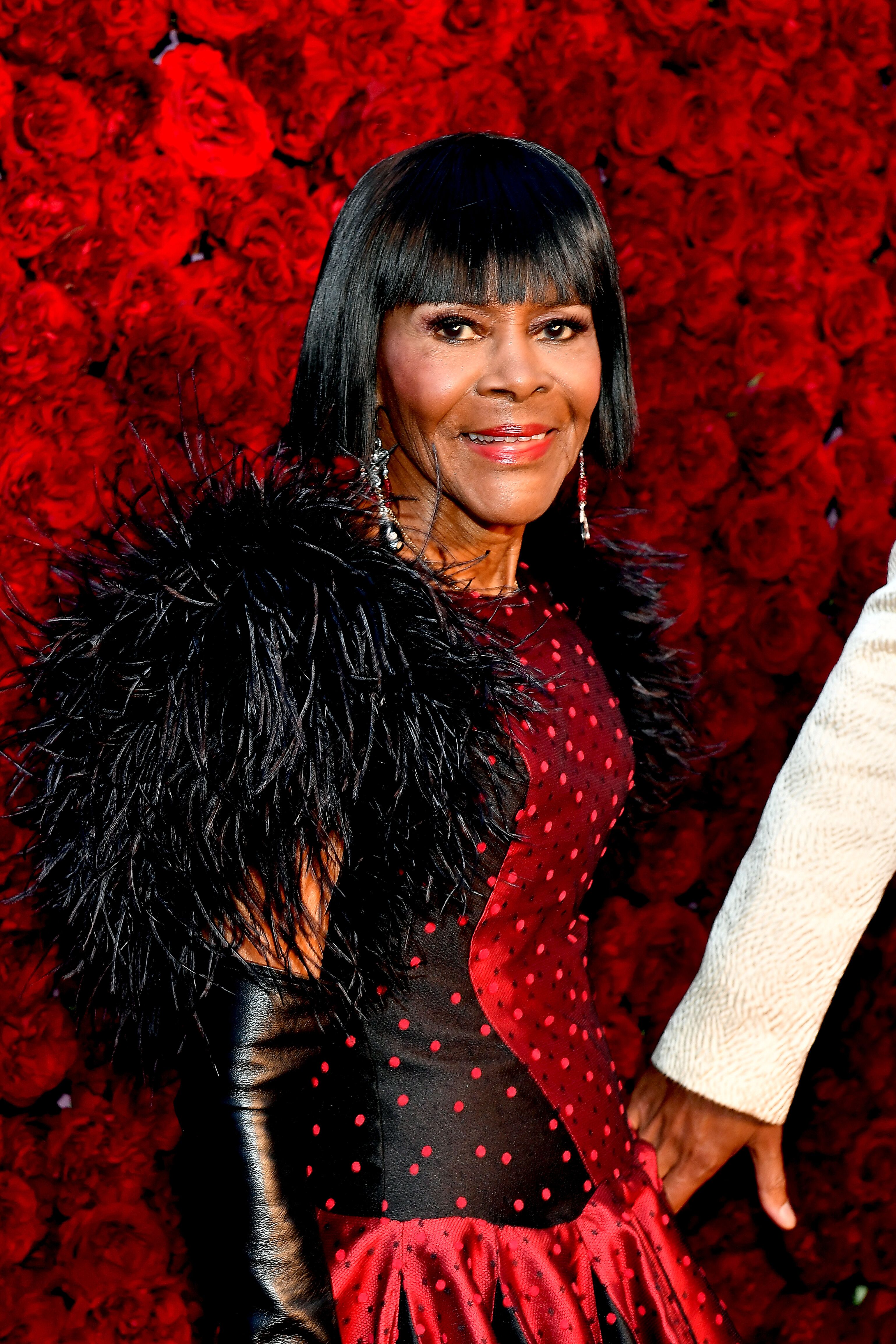
The landscape of American television, a pervasive and influential medium, has been profoundly shaped by a cohort of extraordinary Black entertainers whose pioneering efforts transcended systemic barriers and dismantled entrenched stereotypes. Their remarkable courage and unparalleled talent did not merely alter the visual representation on the small screen but ignited a profound shift towards a more inclusive and authentically diverse entertainment industry. These trailblazers, often against formidable odds, illuminated pathways that Hollywood had historically sought to obscure, leaving an indelible mark that continues to inspire.
From the very nascent stages of television, these individuals ventured into uncharted territory, becoming the first to host network variety shows, star in sitcoms, or portray complex, non-stereotypical characters. Their work was far more than mere entertainment; it was a potent form of advocacy, a testament to resilience, and a powerful demonstration of art’s capacity to catalyze social change. Each performance, each role, and each behind-the-scenes contribution served as a vital step in broadening cultural narratives and fostering a deeper, more equitable understanding of the Black experience within the national consciousness.
This exploration delves into the foundational contributions of several such luminaries, examining how their unwavering commitment to their craft and their community redefined the possibilities for Black artists in media. Their stories are not just chronicles of individual achievement but collective narratives of perseverance, showcasing how their artistry, impact, and significant “firsts” laid essential groundwork for the vibrant, diverse television landscape we recognize today. These are the forgotten architects who, through sheer will and prodigious talent, permanently altered the course of Hollywood.

1. Nat King Cole (1919–1965)
Nat King Cole, a luminary in the realms of singing and music, ventured into the nascent world of television in 1956 with “The Nat King Cole Show.” This groundbreaking endeavor marked a significant historical moment: Cole became the first African American to host a network variety show, challenging the deeply entrenched racial norms of the era. His transition to television was not without considerable obstacles, as the show grappled with a pervasive lack of sponsorship, largely attributed to the racial prejudices prevalent in society at the time.
Despite these daunting challenges, Cole’s inherent charisma and undeniable talent captivated audiences across the nation. His ability to connect with viewers through his artistry shone through, establishing a new precedent for Black entertainers seeking a platform on network television. The show’s existence, however brief, represented a monumental step forward, signaling a nascent shift in the entertainment industry’s approach to racial representation and opening doors that had previously been firmly shut.
Although “The Nat King Cole Show” ultimately faced early cancellation, its legacy proved remarkably enduring. Cole’s pioneering spirit and perseverance in the face of systemic barriers remain a powerful testament to his extraordinary impact on television history. His contributions underscored the potential of Black talent to command mainstream appeal and paved the way for subsequent generations of artists, forever altering the landscape of broadcast media.

2. Ethel Waters (1896–1977)
Ethel Waters was a truly dynamic and multifaceted performer whose illustrious career encompassed vaudeville, Broadway, film, and, critically, the burgeoning medium of television. Her groundbreaking appearance in “The Ethel Waters Show” in 1939 stands as a pivotal moment for Black entertainers, establishing her as the first Black performer ever seen on television. This one-night variety special, airing on NBC, featured Waters alongside fellow Black actresses Fredi Washington and Georgette Harvey, who performed a segment from her play, “Mamba’s Daughters.”
Waters’ impact extended beyond this initial appearance. Her nuanced and compelling performances consistently challenged prevailing stereotypes, paving a crucial path for a broader and more diverse array of roles for Black actors. Her unwavering perseverance and immense talent were instrumental in enriching cultural narratives, demonstrating the profound depth and complexity of Black experiences to a wider audience. Waters’ influence was not confined to entertainment alone; she also utilized her growing platform to advocate passionately for social justice.
In 1962, Waters further cemented her trailblazing status by becoming the first Black person to be nominated for an Emmy. This nomination was for Outstanding Single Performance by an Actress in a Leading Role, recognizing her powerful work in the “Goodnight, Sweet Blues” episode of the CBS adventure series “Route 66.” Her achievements collectively showcased television’s potent capacity as a platform for both artistic expression and meaningful societal change, inspiring future generations to harness media for empowerment.

3. Ruby Dee (1922–2014)
Ruby Dee stands as an acclaimed actress and unwavering activist whose profound contributions to television were characterized by her persistent challenge to racial norms and her enrichment of cultural narratives. Throughout her distinguished career, Dee graced numerous TV dramas, imbuing powerful stories of the Black experience with authenticity and gravitas. Her performances were not merely portrayals; they were windows into the complex realities and profound humanity of Black individuals, offering perspectives often absent from mainstream media.
Dee’s steadfast commitment to social justice was interwoven into the fabric of her artistic choices. She meticulously selected roles that allowed her to leverage her platform to illuminate crucial societal issues, making her work resonate deeply with audiences. Her long-standing and impactful partnership with her husband, Ossie Davis, was particularly noteworthy, as their collaborative projects consistently pushed the boundaries of representation and actively championed the cause of equality, both on-screen and off.
The legacy of Ruby Dee is one defined by remarkable resilience, profound artistry, and an unyielding dedication to activism. Her ability to merge her craft with a powerful social conscience continues to inspire succeeding generations of artists, encouraging them to utilize their creative talents as catalysts for meaningful change. Her unwavering commitment to truth and justice through her art remains an unparalleled example in the annals of television history.

4. Ossie Davis (1917–2005)
Ossie Davis, a multifaceted talent encompassing acting, directing, and writing, profoundly redefined African American representation in both television and film. His carefully chosen roles consistently engaged with complex social issues, providing nuanced portrayals that directly confronted and dismantled prevailing stereotypes. Davis’s approach to character was marked by a deep understanding of the human condition, allowing him to present Black individuals with dignity, intellect, and emotional depth, contrasting sharply with the often one-dimensional caricatures of the era.
Beyond his impactful acting, Davis’s work as a director and writer further underscored his unwavering commitment to authentic storytelling. He possessed a clear vision for narratives that celebrated Black culture and championed social change, often collaborating with his wife, Ruby Dee, to bring these vital stories to fruition. Their joint efforts created a powerful body of work that was both artistically compelling and socially significant, offering audiences a more truthful reflection of American society.
Davis’s enduring legacy is indelibly marked by his relentless pursuit of justice and equality, a mission he pursued with equal vigor both within and beyond the confines of the screen. His groundbreaking contributions to television were instrumental in paving the way for a more inclusive entertainment industry. Through his consistent artistry and activism, he inspired countless artists to harness their platforms for advocacy, solidifying his place as a pivotal figure in the evolution of Black representation.

5. Diahann Carroll (1935–2019)
Diahann Carroll etched her name into television history with her groundbreaking role in “Julia,” a series that premiered in 1968. Her portrayal of Julia Baker, a widowed nurse raising her young son, represented an unprecedented moment for Black women on television: she became the first African American woman to star in a non-stereotypical, leading TV role. This character dramatically departed from the traditional depictions of Black women, who were often relegated to subservient or marginalized positions in media narratives.
Carroll’s inherent elegance and exceptional talent brought remarkable depth and sophistication to Julia Baker, transforming the character into an aspirational figure. Her performance challenged deeply ingrained societal norms and offered a powerful new image of Black womanhood — intelligent, professional, and independent. The series, which ran on NBC from 1968 to 1971, showcased the profound importance of authentic representation and diversity in media, demonstrating that Black characters could lead compelling narratives outside of racialized stereotypes.
Her trailblazing role in “Julia” resonated deeply with viewers and critics alike, earning her numerous accolades throughout her distinguished career. Carroll’s sustained impact emphasized the critical importance of breaking down barriers to redefine possibilities for Black actors, particularly Black women, in the entertainment industry. Her legacy continues to serve as an inspiration, highlighting how one courageous portrayal can fundamentally alter perceptions and open vast new avenues for future generations.
The initial groundwork laid by these visionary pioneers set an unparalleled precedent, but the journey toward full and authentic representation in television was far from complete. A subsequent wave of trailblazers continued to push the boundaries, not only achieving significant accolades such as landmark Emmy Awards but also revolutionizing the very fabric of content creation. These individuals, through their relentless dedication to their craft and their unwavering commitment to justice, forged indelible legacies that cemented the Black presence in television history, expanding narratives and opening even wider avenues for future generations.

6. Esther Rolle (1920–1998)
Esther Rolle’s portrayal of Florida Evans on the immensely popular sitcom “Good Times” transcended mere acting, establishing her as a cultural icon and a pivotal figure in the nuanced representation of Black families on television. Her character, a strong, loving mother navigating the everyday complexities of a Black working-class family in Chicago, offered audiences an honest and dignified depiction that was, at the time, rare and deeply needed. Rolle’s performance imbued Florida with resilience, humor, and an undeniable humanity, making her a relatable and aspirational figure for millions across the nation.
A true advocate for authentic storytelling, Rolle’s influence extended significantly behind the scenes of the production. She famously insisted on more realistic and respectful narratives for Black families, directly challenging producers and writers to move beyond caricature and superficiality. Her unwavering commitment ensured that “Good Times,” despite its comedic format, addressed serious social issues with gravitas, reflecting the everyday struggles and triumphs faced by many Black communities in America. This principled stand underscored her profound dedication to her art and her community, solidifying her reputation as an artist of integrity.
Rolle’s powerful performances resonated profoundly with audiences, sparking important national conversations about race and class that had previously been overlooked or oversimplified in mainstream media. Her ability to infuse even the most challenging scenes with a sense of dignity and truth allowed viewers to connect with the Black experience on a deeply empathetic level. She helped to validate the realities of working-class Black families, making their stories visible and respected within the national television landscape and fostering a more inclusive dialogue.
Her legacy is one of unwavering integrity and a tireless commitment to truth in representation, continuing to inspire future storytellers to honor the complexities and dignity of diverse experiences. Esther Rolle remains a testament to the profound power of an actor to shape not only a character but also public perception and societal dialogue, leaving an indelible mark on how Black families are portrayed and understood in American culture.

7.Sammy Davis Jr. (1925–1990)
Sammy Davis Jr. was an entertainer of unparalleled versatility, whose extraordinary talents in singing, dancing, and acting established him as a consistent and dynamic presence on television variety shows. His appearances were not merely performances; they were groundbreaking acts that inherently dismantled racial barriers, showcasing his immense range and captivating charisma to a broad, national audience. Davis’s ability to command the stage and screen with such effortless grace made him a household name, challenging the deeply ingrained prejudices of the era with every captivating performance.
Beyond his artistic brilliance, Davis skillfully leveraged his considerable platform to advocate for civil rights, utilizing his fame to confront segregation within the entertainment industry and society at large. He became a prominent, albeit sometimes controversial, voice in the movement, using his visibility to push for greater equality and justice, often facing significant personal and professional risks. His unwavering resolve in the face of discrimination highlighted his profound commitment to social change and his steadfast belief in the power of art to influence public consciousness and inspire progress.
Despite enduring persistent discrimination and systemic obstacles throughout his career, Davis’s remarkable resilience and prodigious talent forged a clear and undeniable path for future Black performers. His groundbreaking appearances demonstrated unequivocally that Black artists possessed the talent and appeal to captivate mainstream audiences, breaking down preconceived notions of race and entertainment. He was a pioneer who pushed boundaries, enduring the personal cost to open doors for others in an often-resistant industry.
His trailblazing legacy remains profoundly influential, serving as a powerful reminder to artists of the transformative power of courage and creativity in overcoming adversity and reshaping the entertainment landscape. Sammy Davis Jr. stands as an enduring symbol of how individual brilliance can drive societal progress and redefine what is possible for Black entertainers in Hollywood and beyond, forever changing the expectations and opportunities available.

8.Paul Winfield (1939–2004)
Paul Winfield stands as a seminal figure in television, celebrated for his powerful and nuanced portrayals in dramas that actively confronted and challenged racial stereotypes. His acting brought a profound depth to complex characters, introducing narratives that moved significantly beyond the often simplistic and reductive depictions traditionally assigned to Black individuals in media. Winfield’s commitment to authenticity ensured that his roles resonated with genuine human experience, providing audiences with richer, more multifaceted perspectives that encouraged thoughtful engagement.
His exceptional work garnered widespread critical acclaim, earning him numerous accolades and inspiring an entire generation of actors to pursue diverse and challenging roles that pushed the boundaries of representation. Winfield’s dedication to his craft was evident in every performance; he meticulously delved into the psychological intricacies of his characters, thereby helping to reshape the portrayal of Black individuals on screen. His contributions fostered a deeper appreciation for the dramatic potential and narrative complexity inherent in Black stories, validating them within the mainstream.
Winfield’s impact was particularly notable in television movies and miniseries, where he often anchored powerful narratives that explored themes of race, justice, and humanity with unparalleled gravitas. His presence lent an air of authenticity and authority to every project, ensuring that even supporting roles made a lasting impression and contributed to a larger cultural conversation. He demonstrated that Black actors could command the screen in substantive, non-stereotypical capacities, broadening the scope of roles available to his peers and successors.
His enduring legacy is widely celebrated for significantly expanding the possibilities of storytelling on television, encouraging artists to transcend conventional limitations and fully embrace diversity in their work. Paul Winfield demonstrated that Black actors could embody a vast spectrum of human experience, from vulnerability to strength, without being confined to narrow, pre-determined molds, thus laying crucial groundwork for a more inclusive and imaginative approach to character development in the industry.

9.Al Freeman Jr. (1934–2012)
Al Freeman Jr. distinguished himself through a compelling body of television work, most notably his iconic role in the long-running daytime drama “One Life to Live.” His performance in this series was not merely a significant artistic achievement but a historical one, earning him the distinction of becoming the first African American to win a Daytime Emmy Award for Outstanding Lead Actor. This award marked a critical moment in television history, acknowledging the depth and impact of Black talent in a category traditionally dominated by others and underscoring a growing recognition of diversity.
Freeman’s portrayals were consistently characterized by their emotional depth and intricate complexity, qualities that directly challenged prevailing stereotypes and opened essential doors for Black actors across Hollywood. He brought a profound gravitas and intellectual rigor to his characters, demonstrating that Black individuals could lead narratives with profound emotional resonance and intellectual sophistication. His willingness to delve into challenging themes broadened the scope of what Black actors could achieve within the confines of daily serial dramas, pushing against established norms and expectations.
Beyond his Emmy-winning performance, Freeman maintained a prolific career that showcased his versatility across various television formats, from guest appearances on primetime dramas to roles in made-for-TV movies. His consistent presence on screen served as a powerful testament to his enduring talent and his ability to command the attention of audiences and critics alike. Each role he undertook contributed to the ongoing effort to normalize Black faces and Black stories in American homes, fostering greater familiarity and acceptance.
A respected figure throughout the industry, Freeman’s unwavering commitment to his craft and his readiness to tackle difficult subject matter solidified his reputation as a fearless and transformative artist. His legacy continues to serve as an enduring inspiration for actors who aspire to break through entrenched barriers and achieve excellence in their art. Al Freeman Jr.’s career stands as a testament to the power of dedicated performance in advancing representation and irrevocably reshaping an industry that had long resisted change.

10.Harry Belafonte (1927–2023)
Harry Belafonte, a multi-talented performer renowned globally for his musical artistry and acting prowess, was also a formidable trailblazer in early television, making significant strides in breaking racial barriers during the mid-20th century. His compelling presence on screen, particularly through his involvement in a series of innovative television specials, marked him as a pioneering figure who harnessed the medium’s reach to showcase Black talent and dignity. In 1956, Belafonte achieved a notable milestone, becoming one of the first Black performers to be nominated for a Primetime Emmy Award, a recognition that underscored his exceptional talent and burgeoning influence within the entertainment landscape.
His groundbreaking journey continued with an even more impactful achievement when, in 1960, Belafonte cemented his place in television history by becoming the first Black performer to win an Emmy Award. This historic victory was for his television special “Tonight With Belafonte,” which was a segment of “The Revlon Revue.” The win was not merely a personal triumph but a profound cultural moment, validating Black artistic excellence on a national stage and demonstrating unequivocally that Black entertainers could achieve the highest accolades in mainstream media, challenging long-held prejudices.
Belafonte’s pioneering efforts extended far beyond awards and captivating performances; he consistently used his artistic platform as a powerful tool for social justice and civil rights advocacy. His captivating presence and dignified demeanor on television offered a compelling counter-narrative to prevalent stereotypes, inspiring audiences and opening crucial pathways for future generations of Black artists to be seen and heard authentically. He utilized his fame to bring attention to racial inequities, becoming a vocal proponent for change on a national scale.
His enduring legacy is a powerful testament to the profound impact of combining artistic mastery with an unyielding commitment to social change, forever altering the landscape of entertainment and advocacy. Harry Belafonte proved that celebrity could be a formidable force for good, shaping not only the artistic direction of television but also contributing significantly to the broader struggle for equality and representation in American society, leaving an indelible mark on both culture and consciousness.

11 . Cicely Tyson (1924–2021)
Cicely Tyson stands as an unparalleled icon in American television and cinema, whose career was singularly defined by her unwavering commitment to portraying strong, dignified, and complex Black women with profound authenticity. Her ground-breaking presence in the series “East Side/West Side,” which premiered in 1963, marked a significant moment for Black actresses in television dramas. Tyson brought an extraordinary depth and gravitas to her roles, ensuring that her characters were always authentic and deeply resonant, thereby directly challenging the prevailing limited and often stereotypical representations of Black women that had dominated screens.
Her enduring impact on the industry was powerfully recognized in 1974 when she achieved a historic milestone, winning an Emmy Award for her starring role in the acclaimed television movie “The Autobiography of Miss Jane Pittman.” This masterful performance, where she brilliantly depicted a woman’s life spanning over a century, earned her the Lead Actress in a Miniseries or a Movie Emmy. This win was not only a personal career highlight but a pivotal moment for Black actresses, affirming their capacity for powerful dramatic leadership and critically acclaimed performances at the highest level of television.
Tyson’s meticulous selection of roles and her unwavering refusal to compromise on the integrity or dignity of her characters made her a formidable force in shaping narratives. She consistently championed stories that empowered and uplifted Black voices, ensuring that their experiences were portrayed with respect and truth. Her work paved the way for more nuanced and substantial roles for Black women, demonstrating that their stories were rich, diverse, and deserving of prime-time attention, thereby creating new possibilities for representation.
Her legacy continues to inspire countless artists and audiences alike, redefining what was possible for Black women in entertainment. Through a career marked by profound artistry and a steadfast dedication to activism, Cicely Tyson transcended mere acting to become a form of vital cultural and social advocacy, irrevocably altering the landscape of television and film and solidifying her place as a true pioneer and a guiding light for future generations.
The indelible marks left by these Black television pioneers are far more than historical footnotes; they are foundational pillars upon which much of today’s diverse media landscape rests. Their individual acts of courage, extraordinary talent, and unwavering dedication to authenticity collectively shattered entrenched barriers, challenged societal perceptions, and ignited a profound shift towards greater inclusion. From the first hosts to the Emmy winners who redefined dramatic possibility, these trailblazers not only entertained but educated, advocated, and inspired, proving that true art can indeed change the world. Their stories are a testament to perseverance, a celebration of excellence, and a constant reminder that the fight for equitable representation is an ongoing journey, profoundly shaped by the legacies of those who dared to dream bigger and whose profound impact continues to reverberate through every corner of the entertainment industry.



